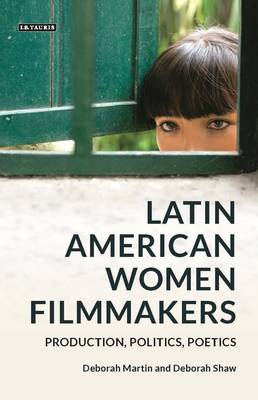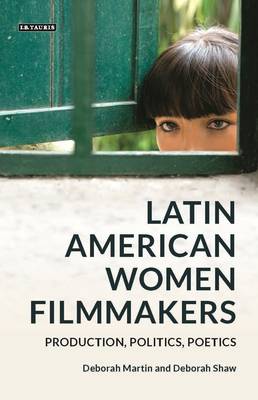
- Afhalen na 1 uur in een winkel met voorraad
- Gratis thuislevering in België vanaf € 30
- Ruim aanbod met 7 miljoen producten
- Afhalen na 1 uur in een winkel met voorraad
- Gratis thuislevering in België vanaf € 30
- Ruim aanbod met 7 miljoen producten
Omschrijving
Latin American women filmmakers have achieved unprecedented international prominence in recent years. Notably political in their approach, figures such as Lucrecia Martel, Claudia Llosa and Bertha Navarro have created innovative and often challenging films, enjoying global acclaim from critics and festival audiences alike. They undeniably mark a 'moment' for Latin American cinema.Bringing together distinguished scholars in the field - and prefaced by B. Ruby Rich - this is a much-needed account and analysis of the rise of female-led film in Latin America. Chapters detail the collaboration that characterises Latin American women's filmmaking - in many ways distinct from the largely 'Third Cinema' auteurism from the region - as well as the transnational production contexts, unique aesthetics and socio-political landscape of the key industry figures. Through close attention to the particular features of national film cultures, from women's documentary filmmaking in Chile to comedic critique in Brazil, and from US Latina screen culture to the burgeoning popularity of Peruvian film, this timely study demonstrates the remarkable possibilities for film in the region.
This book will allow scholars and students of Latin American cinema and culture, as well as industry professionals, a deeper understanding of the emergence and impact of the filmmakers and their work, which has particular relevance for contemporary debates on feminism.
Specificaties
Betrokkenen
- Uitgeverij:
Inhoud
- Aantal bladzijden:
- 288
- Taal:
- Engels
- Reeks:
Eigenschappen
- Productcode (EAN):
- 9781350244252
- Verschijningsdatum:
- 18/11/2021
- Uitvoering:
- Paperback
- Formaat:
- Trade paperback (VS)
- Afmetingen:
- 140 mm x 216 mm
- Gewicht:
- 335 g

Alleen bij Standaard Boekhandel
Beoordelingen
We publiceren alleen reviews die voldoen aan de voorwaarden voor reviews. Bekijk onze voorwaarden voor reviews.






